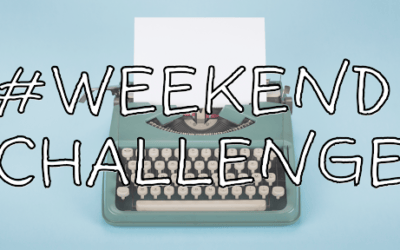
How To Write Better Dialogue
Write Better Dialogue
Your character’s voice — the words they choose and how, when, and why they say them — is an integral part to any character. Each of your characters should sound true to themselves, and their dialogue should reflect their character traits. Learning to write better dialogue is key to improving your writing in general.
First off: you need to know your character.
It’s very hard to “hear” your character until you know their strengths and weaknesses, their backgrounds, and their motives. Was your character born in a small town and is trying to make it in a big city for example? How might that affect how they speak? Would their dialogue style slip when they’re flustered or distracted? It’s little details like this that can develop your character tremendously.
Doing some character work is the first step to making realistic sounding characters, and writing better dialogue. Here are some things to consider:-
- Your character’s age. Think about how they might see the world. A six year old might not know what a category four hurricane is, but if they saw one approaching, they’d know it’s a storm.
- The era your story is set. Think about what might appear strange to a character from a different era. How they might describe a new piece of technology without anything to base it on. If your story is set in the past, some things we currently take for granted might seem miraculous to your character. We often reference things that are linked to our own time growing up. Details like this will help to ground your character in the time they’re living in.
- Your character’s home life. Where do they live? What sort of area is it? Are they rich? Poor? Something in between? People will choose different wording based on where they call home.
- Who are they speaking to? We all speak differently to different people. Your best friend might get one version of you, and your boss might get something completely different. Changing your character’s tone as she goes through her journey will make her sound more realistic.
There are many other things to consider to write better dialogue, but this will give us a great starting point.
Dialect: to write or not to write?
When you hear your character’s accent clearly in your head, you might be tempted to write it out phonetically. For example: “I ain’t tryin’a do nothin’.“
While this might seem authentic to your character, it can be quite fatiguing to read in large chunks. If you choose to add in some accent in your dialogue, it’s often better to add it in sparingly. The last thing we want is for a reader to skim-read the dialogue if it is hard to read!
If you’ve described your character in a meaingful way, your audience will be able to fill in the blanks when it comes to their dialect. When we write better dialogue, with phrases that ring true, physically writing accents won’t be needed.
Character dialogue: How true to life?
Finding a fictional voice is often a balancing act between what is real and what is easy to read. In real life we use a lot of filler words, such as “um,” “OK,” “you know,” etc.
Sprinkling some of these filler words into your dialogue can make your characters sound more true to life, but if you add in too much of this you risk slowing down the pace of your story. A little goes a long way!
Write Better Dialogue: Make it ring true.
There is nothing more jarring for a reader than when dialoge is robotic, or un-true to the character. You can make simple improvments by listening to people speak in real life. For example, it might be second nature to write “You do not need to take me to school today, Mum.” But who in real life says “do not” instead of “don’t”?
Try saying the line out loud, think how you might say it, or how a friend might say it. Think about what rings true. This is particularly important when we’re dealing with younger voices. You need to really listen to how younger people speak in real life. Maybe we don’t need to copy everything exactly, but a little bit of flavour will add in a lot of authenticity.
Read Out Loud!
This is the most important piece of advice when it comes to dialogue. Dialogue needs to sound authentic. You’ll be able to catch mistakes a lot easier this way. Your ears don’t lie!
Different voices
Another good test is this: could another of your main characters say that line in exactly the same way? They probably shouldn’t be able to. You should be able to clearly hear the differences between your characters when they speak. Just like you could if they were real.
Write Better Dialogue: key phrases
Some people have things they say all the time. It might be the way they say goodbye, it might be a joke they like to tell. It might just be a turn of phrase that they enjoy. Your fictional characters should be no different.
You want your reader to be able to hear your character clearly in their mind when they read. You want your reader to be able to know straight away who is speaking in a group scene, even before they read the character’s name.
Giving your character some repeated phrases, or some quips, will help to make your character more three-dimensional. Of course, we need to use this technique sparingly. But it is very effective!
Authentic Character Voice: why is it important?
You want your reader to have a connection with your characters, and they can only do that if they believe in your characters… if they invest in them. It’s well worth putting in the extra effort with dialogue, as some might argue this is the most important part of your story. When readers read quickly, they will often skim to the dialogue. It’s the one thing no one skips.
Tips for
Writing Better Dialogue:
Listen, Listen, Listen!: This is so important when we want to improve our fiction. Whether it’s on the bus, at a coffee shop, or at a family BBQ, listen to how people speak; how conversations bounce from person to person. Listen to what is being said and how it’s being said. You never know what gems of inspiration you might find when you open your ears to receive them.
Read out loud: If your words are uncomfortable to say then look more closely. Consider, something as simple as, “I don’t want to go.” Compared to, “I do not wish to go.” If your character is a present-day kid, the former would work perfectly. The latter? Not so much.
Think of key phrases for your character: Now, we don’t want everyone running around with cheesy catch-phrases, but if your character says, “See ya,” when they leave, make it consistent through your story. If they have a cute nickname for another character then keep it consistent too. It’s the little things that all add up to make three-dimensional characters. These little touches will help to solidify your character’s voice in your reader’s mind.
Go forth and write better dialogue!
Dialogue is arguably the most important part of your story. It’s how readers gather information on your characters, it’s how they hear them in their heads.
If you keep listening to casual chatter around you, and read out loud as much as you can, you will definitely start to see an improvement in your dialogue. Reading other books out loud can help immensely too. If you’re reading a book with great dialogue, start reading out loud! Feel the words on your tongue; feel their rhythmn. Examine why it rings true to you, and think about how you can encorporate these findings into your own work.
Hopefully with these tips in mind you can start writing better dialogue right away!
Read Next: How To Identify You Crutch Words
Read our Latest Articles for Writers
The Writer’s Guide to Social Media
Today we are talking about a topic that intimidates many writers and illustrators, social media. Good news! It doesn’t have to. The key is to choose the platform that is most enjoyable to you. The one you don’t mind spending time on and fosters authentic...
How to Win a #WeekendChallenge
Thank goodness it’s Friday, WA Community, and not just because it’s the start of the weekend. Friday’s have us happy dancing because that’s when we announce the new #WeekendChallenge prompt. The #WeekendChallenge is an opportunity to write a 100-word entry based on a...
Submitting Your Story: 7 Tips to Survive the Query Trenches
You’ve typed “the end”, received feedback, and revised your story. Congratulations, you are ready to enter the Query trenches! Whether you decide to query an agent or an editor is a personal preference but these seven survival tips will apply to both query routes....
Subscribe to our mailing list
Be the first to find our about our newest blogs, offers and news from Write Academy!






